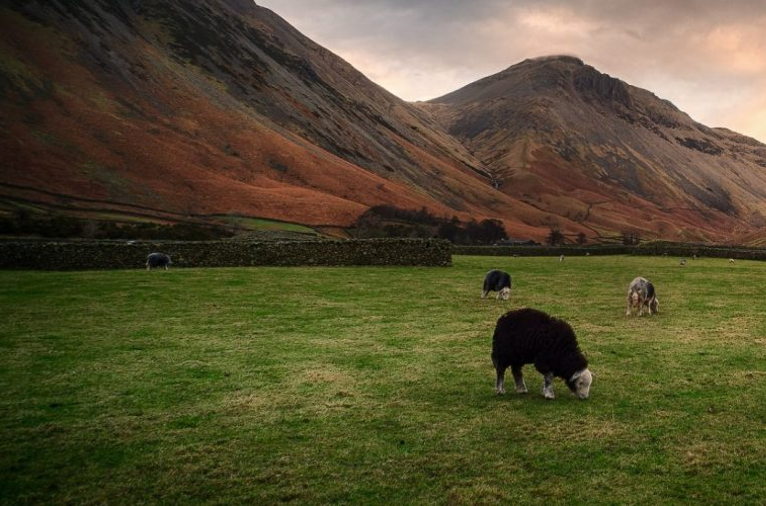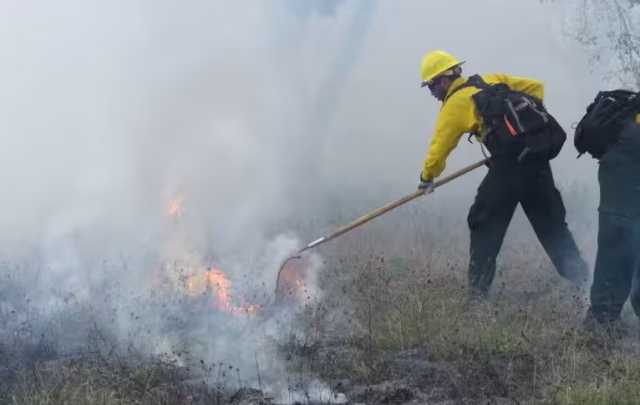With customary insight, Rory Stewart MP made the case for upland farming when he spoke in the Intelligence Squared debate on 10thJuly, “The battle for the countryside: Britain should rewild its uplands”; it was attended by, among others, Secretary of State for Environment, Food and Rural Affairs Michael Gove.
Forgive the pun, but Stewart has a track record of taking to his feet in search of grass-root insights about people and place; be it walking the lengths of the border country in Afghanistan or crossing the breadth of middle England. He spoke passionately about his own local community of upland farmers hefted, like their sheep, to their patch of uplands, and whose traditional farming practices, in fair weather and foul, have made the uplands synonymous with our sense of national identity, this “green and pleasant land”. To his detractors he gave a radical and provocative suggestion: the uplands are not the problem. If you want to reverse some of the most intensive farming practices, address problems of environmental pollution, loss of habitat, biodiversity and bring the benefits of a green environment to the doorsteps of hundreds of thousands, then rewild the Green Belt and encircle our cities in swathes of trees.
Viewed over centuries, the beneficial role of upland farmers as stewards of both the landscape and their local communities is clear. However, George Monbiot, spoke for rewilding largely from an ideological standpoint. For him, it appeared to be a means to stop the public purse paying (rich) landowners direct subsidy payments – just because they own land. This is not just a dangerous over-simplification; it is also massively misses the point. Direct payments without sufficient pre-conditions may be a poor use of public money, but that is an entirely different point to the one being debated. And in any case, they have already been served notice; Defra’s Health and Harmony Command Paper slapped a demolition order on Pillar 1-type payments, to be replaced by “natural capital thinking…which moves away from subsidies for inefficiencies, towards ‘public money for public goods’, and, we must hope, more sustainable methods of food production. At this time, when we have a unique opportunity to realise the vision of sustainable farming, disassembling centuries of upland farming know-how, would be an epic case of throwing the beautiful baby out with the dirty bathwater.
Unhappy accident that it is, Brexit has, nevertheless, been the catalyst for a much needed reimagination of UK agricultural policy, and upland farming will be its greatest ambassador. Upland farms are the depositories for some of the greatest caches of the nation’s natural capital. Through the continuation of their inherited farming practices, upland farmers can deliver vital environmental outcomes – such as sequestering carbon, increasing the water holding capacity of upland areas which protects lowland towns from flooding, and restoring habitat-loss for critical populations such as bees – in return for public money, not as a replacement of farming income, but as an augmentation of it. Many upland areas, including Exmoor, have readily grasped the potential of natural capital. Now the detail of a UK Agricultural Bill must back up fine words with an enabling regulatory and tax regime. Those who deliver sustainable, ethical, healthy, food in response to the consumers’ demand, must see and feel the positive effects of a system designed to work in their favour, and against those who produce food of little nutritional value at the greatest cost to the environment.
This then, is the case for upland farming: food and environment in sustained and beneficial symbiosis. Arguably, this is still too narrow an understanding of the role of upland farming for society at large. The connective tissue linking upland farming with a fuller and broader vision of its role within society may have come in March this year, when the Select Committee on the Natural Environment and Rural Communities Act (NERC), chaired by Lord Ewen Cameron of Dillington, reported its findings to Government – It made for uncomfortable reading. The Select Committee’s Report was highly critical of Government’s failure to fulfil its responsibilities to the environment and to rural communities. The 2006 NERC Act brought into being Natural England and the Commission for Rural Communities. The report accuses Government of hollowing out its provision, noting that Natural England is insufficiently resourced and lacks independence from Government, and that the Commission for Rural Communities was abolished and replaced with a small unit within DEFRA – the Rural Communities Policy Unit – which was itself subsequently abolished. The report concludes that Government, has singularly failed to deliver the “rural affairs” part of Defra, and that the Natural Environment and Rural Communities Act 2006 is no longer fit for purpose.
Whether by accident or design, in May this year Michael Gove announced a review into the role of National Parks, led by Julian Glover, with Lord Cameron as one of its members. The review will consider both the role of National Parks and the case for creating new National Parks, potentially encompassing the entirety of our upland, moorland, and littoral farmed landscape.
Ask the average man in the street – especially if he lives in a street within a National Park – what is the role of the National Park Authorities, and he will probably say “a planning authority to stop any development within National Parks”. But properly resourced, National Park Authorities (NPAs) could effectively address much of the structural degradation of rural communities sited in the Select Committee’s Report. NPAs should be the drivers of resilient, vibrant rural communities, embracing farming as a key employer, community builder, tourism partner and steward of spaces vital to the well-being and mental health of our society.
Unlike any government department, NPAs are embedded within rural communities, for rural communities, and have a unique focus and understanding of their needs from broadband to bus stops. Above all else, vibrant communities require jobs and infrastructure. As one such example, this Review of National Parks should urgently take note of SFT’s recent report on the near collapse of the UK’s small abattoir network, a vital and hard-to-rebuild part of the rural economy. NPAs could step into the breach to reverse the decline, and even reimagine the future. Just as village pubs, post-offices and shops have creatively found ways of combining services to become social and service hubs for their communities, why should we not reimagine abattoirs as one part of a rural community’s processing hub, enabling local people, farmers and smallholders to add value to produce; not just to meat but a whole range of farmed produce from fruit to timber. This is surely a golden opportunity for National Parks to shake off their elitist image as safe havens for retirees and nimbies. National Parks should and can provide an enabling environment for an active, dynamic rural community that creates jobs, maintains vital rural skills, and re-localises the food chain.
These are exciting times but not without jeopardy. The future of sustainable farming is a 1000 piece jigsaw as yet unmade. The pieces are scattered and disparate, but for once they are all there and tantalisingly within our reach.
Photo Credit: Richard Walker





